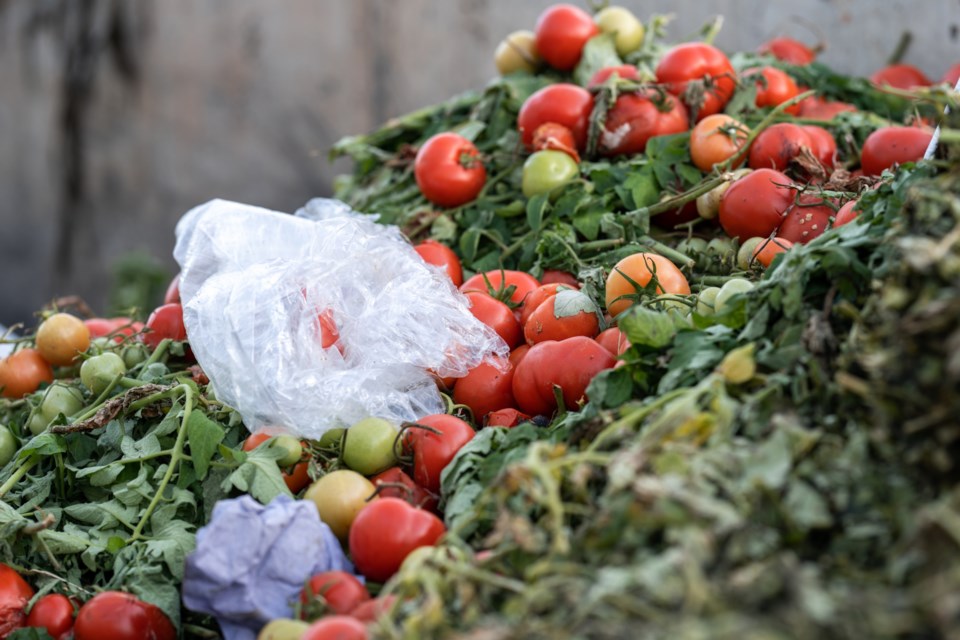As the cost of living rises, we’re all searching for ways to stretch our budgets, especially when it comes to groceries. What if the easiest way to save money is simply reducing food waste?
In Canada, the average household throws away about $1,300 worth of edible food every year. That’s equivalent to tossing a full grocery bag into the trash every single week. In today’s economy, that isn’t just careless; it’s a luxury we can’t afford.
And the impact of food waste goes far beyond our finances. Producing food requires water, land, energy, and labour. When we waste food, we disregard all the resources that went into getting it to our plates. Worse, when food ends up in landfills, it emits methane, a potent greenhouse gas contributing to climate change.
Food waste is a climate issue; one we’ve normalized. It’s time to stop pretending it’s harmless.
A culture of waste
How did we get here? We live in a society where wasting food has become routine. Our systems make food cheap and disposable. We’re sold on the idea that more is better, and we treat best-before dates like gospel, trading in common sense for caution.
Meanwhile, nearly half the food in Canada never gets eaten. In Whistler, one-fifth of household food waste is avoidable—perfectly good food thrown away that could have been consumed. It’s not just unfortunate; it’s absurd.
Many households are already masters of making food stretch. But the uncomfortable truth is that most of us are part of the problem. And unless we’re willing to face that, we’ll keep throwing away more than just food.
Why should we care?
Because if we don’t change our habits, we’re not just wasting food—we’re accelerating climate collapse. When we shrug off our role in food waste, we normalize the problem. And when millions of people normalize waste, we fuel a collective crisis.
We need to talk about it. We’re quietly consuming more than we need and tossing what becomes inconvenient: too wrinkled, too close to date, or forgotten in the fridge.
Meanwhile, waste builds in our landfills, and climate extremes become our new normal. This isn’t fearmongering, it’s fact. Future generations are counting on us to care now, because the habits we form today will shape the world they inherit tomorrow.
So, what can we do?
By understanding a few of the most common reasons food goes to waste, we can take action to waste less, save more, and be part of the solution.
1. We misunderstand best-before dates
A major driver of household food waste is confusion over date labels. In Canada, 23 per cent of avoidable food waste comes from people tossing food based on best-before dates. But “best before” doesn’t mean “bad after.” These labels are about peak quality, not safety. A box of crackers might be a little less crisp, but still perfectly fine to eat. Yogurt, eggs, and milk often last well beyond their best-before dates. We’ve outsourced our judgment to arbitrary labels. If it looks, smells, and tastes fine, it likely is. (“Expiry” dates are the exception, indicating when a product is no longer safe to consume).
2. We store food incorrectly
Fruits and vegetables make up 45 per cent of the food wasted in Canada. And often, it’s simply because they weren’t stored properly. A few easy fixes can go a long way: trim herb stems and keep them in a jar of water in the fridge like a bouquet. Keep mushrooms in a paper bag to prevent moisture buildup. And don’t default to the fridge; bananas, potatoes, and onions prefer cool, dry counters. Knowing how to store your food isn’t just smart; it’s a simple way to show respect for the resources it took to produce it.
3. We don’t know what to do with leftovers
Leftovers make up 13 per cent of Canada’s food waste, often because they don’t seem like a full meal: a half-portion of rice, a few roasted carrots, half a bowl of soup. But when we stop seeing leftovers as scraps and start seeing them as ingredients, the possibilities grow. Roasted vegetables can become a frittata, soup, or sandwich filling. Leftover rice is perfect for a stir-fry or grain bowl. Creativity in the kitchen doesn’t have to be gourmet, it just has to be intentional.
A mindset shift
At its core, food waste isn’t just about habits—it’s about values. Are we really OK with discarding perfectly good food because it’s more convenient than figuring out what to do with it? Are we comfortable with the environmental consequences of our choices just because we don’t see them happening in front of us?
This isn’t about guilt, it’s about responsibility. We can choose to plan better. To store smarter. To cook what we already have. And we can choose to talk about it; to challenge the culture that normalizes food waste.
Food is too valuable to waste. In a world where so much feels out of our hands, this is something we can control. Saving food means saving money. It means protecting the planet. It means doing right by the people, places, and systems that make our meals possible.
Compost what’s left
Of course, not all food can—or should—be eaten. Composting keeps scraps out of landfills, prevents methane, and returns nutrients to the soil. By separating food scraps, we help close the loop, transforming waste into a valuable resource for gardens, farms, and green spaces.
AWARE works with the community to deliver bold, inspiring evidence-based solutions to the environmental issues that affect Whistler. Read more at awarewhistler.org.




